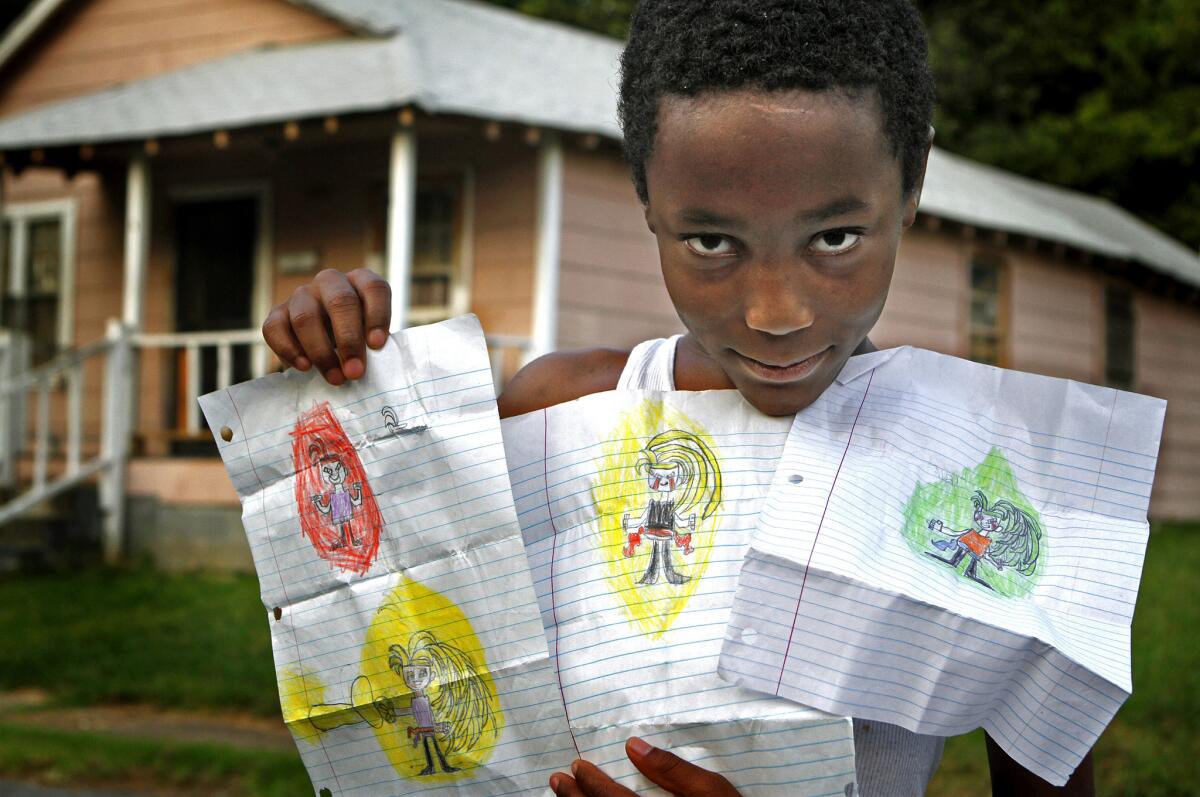Op-Ed: I was born into foster care. A mentor would have made a big difference in my life

- Share via
I was born into foster care. My mother was in prison when she was raped and became pregnant with me. Like many mothers who must surrender their children to foster care because of addiction, disability, mental illness or incarceration, she was not allowed to keep me. And like all children entering the child welfare system, I didn’t have a choice either.
I was more fortunate than most because I was adopted when I was 3 years old. My adoptive mother was a single mother — remarkable and strong and a loving woman. Thanks to her, I graduated from high school, an accomplishment achieved by fewer than a third of youths in foster care. I went on to attend Cal State LA, her alma mater. (Only 2.5% of children who grow up in foster care graduate from a four-year college.)
But just before my college graduation, my life turned upside-down. My adoptive mother passed away, and that same year my biological mother sent me a letter from prison. It was my first contact with her, and through the letter I learned that I was a product of rape. I hoped I might be able to have a relationship with her, but she didn’t want to meet me. A face-to-face meeting, she felt, would only stir up traumatic memories.
For the first time in my life, I was completely alone. I was once again a motherless daughter. I had no money and no support system. For a short time, I was homeless, until I found a job and my new boss did something remarkable — she gave me the money to pay my first month’s rent. This act of kindness from a near stranger moved me to tears because the family of my adoptive mother had pushed me out on the streets.
I was able to move beyond the adversity I faced, thanks to a combination of my own determination and the support of my boss and other mentors. My experiences inspired me to become a mentor to other young women and to advocate for mentorship for children in foster care and other disadvantaged youth.
This country desperately needs more mentors. A report by the National Mentoring Partnership found that more than 1 in 3 young people, including an estimated 9 million at-risk youth, “never had an adult mentor of any kind” while growing up.”
I know the difference a mentor can make. An executive director of a nonprofit greatly helped me in my immediate post-college years. When a dear friend committed suicide, he helped me navigate a career change from architecture to child welfare and clinical psychology. A retired dean of education instilled in me the confidence I needed throughout my journey to earn my doctorate in public policy and nonprofit leadership.
But I often wonder how different my younger life might have been if I’d had a mentor during my childhood as I was sorting through the emotions of adoption and being a product of the child welfare system. Perhaps I would have had someone to turn to when my mother died. Perhaps I wouldn’t have felt so alone.
At any given time, 50,000 kids are in foster care in California — nearly 20% of the nation’s total foster youth population. Most have experienced some form of trauma. Understandably, students who are exposed to trauma and violence have higher suspension and expulsion rates and lower school attendance and grades. Mentorship can help them deal with some of the challenges that lead to poor academic performance and behavior. Research suggests that mentoring for children in foster care positively impacts mental health, educational functioning and peer relationships.
As a branch director for a Southern California nonprofit that provides children and families with social services, I know this: We all need human connection, but these children need it more than most. I have seen firsthand the benefit in connecting more youths in foster care with adult mentors who can instill hope, encourage change and provide a safe place for children of all ages to share their stories. A good mentor models positive behavior, teaches life skills and empowers kids to take on challenges with confidence. A strong relationship with a mentor can also give children in foster care a sense of belonging that they may never have experienced before.
There is no shortage of opportunities to mentor foster and adopted children — whether it’s through a well-known program like Foster Care to Success or a regional program like Cal State Northridge’s Adoption Promotion & Support Services. The Department of Child and Family Services can also refer potential mentors to specific organizations with the greatest needs. Children in foster care who are transitioning out of the foster care system are especially in need of mentors, because they may have lost their previous support networks.
Mentorship isn’t a cure-all. But it can make a profound difference in the life of a child who will suddenly feel less alone.
Kay Ramsey is executive branch director for Bethany Christian Services in Southern California.
More to Read
A cure for the common opinion
Get thought-provoking perspectives with our weekly newsletter.
You may occasionally receive promotional content from the Los Angeles Times.










